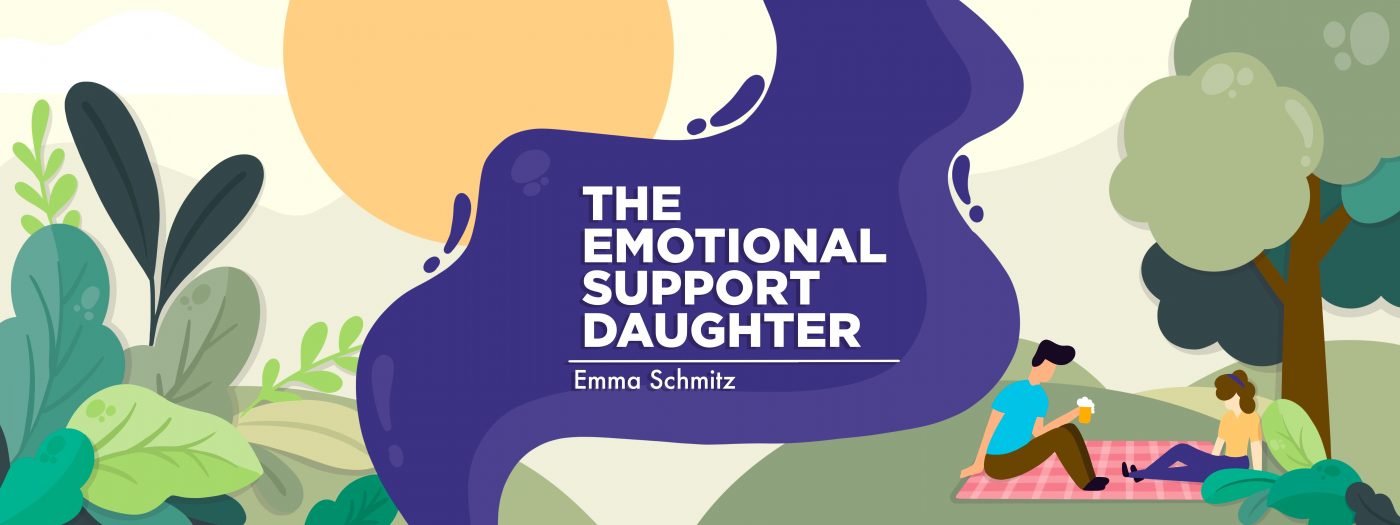Caring for My Mom When Her Lifesaving Organ Brought Hereditary Risk

Spending a month in San Francisco is a good way to get out of your head. Some people come to the mountains, where I live, to clear their minds. I like to go where the action is in the city to fill my head with things besides my own thoughts. To remember I’m only a drop in the bucket. To stop worrying so much.
Turns out that caring for someone you love can help to dissipate anxiety and make you feel less alone, too. Like a working dog with a job, I’m less likely to chew up the couch pillows if I have things to do. I experienced this as I was helping my dad care for my mom, Diana, after her lung transplant. We holed up in a small, white house in the middle of San Francisco in June of 2020 to help my mom recover.
This was life, in a nutshell, for those three weeks: Wake up. Have breakfast ready so Mom doesn’t faint when my parents return from morning tests and appointments at the University of California, San Francisco hospital. Help Mom with her antifungal breathing procedure while Dad counts her morning pills (more than 50 a day total). Let Mom sleep while Dad and I get some work done. Lunch, clean up, work some more.
After most meals, we went on very short, very slow walks together to exercise my mom’s new lung. Besides that, I wasn’t exactly allowed to leave the house whenever I wanted. No one could have known that her new lung would bring with it a dangerous hereditary condition. It saved her life but exposed her to a new lethal risk: an arteriovenous malformation (AVM).
Basically, this means that, while the chances are low, an important artery connecting my mom’s lung to her heart could hemorrhage at any moment and cause a stroke or kill her. According to Johns Hopkins, “Fewer than 4 percent of AVMs hemorrhage, but those that do can have severe, even fatal, effects.”
The doctor told us that we were not to leave my mom alone. Someone needed to be close enough to see her at all times. So, my dad and I had procedures. If one of us needed to shower or use the bathroom, the other stayed near my mom. If we needed more bread, one of us went to the grocery store while the other stayed with my mom. If one of us needed to get the hell out of the house, the other had to stay.
After a few weeks, I started missing the quiet and solitude I’ve created for myself. I began to feel “homesick for loneliness,” apparently a phenomenon writers or introverts often feel. I began to remember why I left the city and the suburbs for the mountains. Eventually, my caregiver mask started to crack and, thankfully, my mom noticed. (She has a knack for sensing things I don’t even know yet about myself.)
That’s the thing with recovery — people get better, things become easier. As my mom started to notice my restlessness (and honestly, depression), we all began to realize that she was capable of doing some of the tasks I had been there for in the first few weeks. The fact that I had the opportunity to become annoyed revealed to us that she was getting better. Soon after, she told me to go home.
I felt ashamed for not being able to stay longer than three weeks. I felt guilty that my dad didn’t have the same out as I did. Who would watch Mom while he went for his daily walk? Who would go grocery shopping?
Because of the pandemic, the handful of hugely supportive friends who wanted to help weren’t allowed to go near my mom. We needed help, and people wanted to help, but no one could. So I said I would be available to FaceTime her whenever my dad needed to leave the house. Nine months after my mom’s transplant, the phone remains our line of connection almost every day.
Now that I write this, I realize I worried more about my dad than I did about my mom. Maybe because my dad has a history of stress and cardiac disease, I was concerned with his heart. Even at her most vulnerable, my mom exudes a matter-of-fact aura of “everything will be how it’s meant to be.” It’s her beyond-human emotional strength that has always carried us, that carries each of us who care for her.
***
Note: Pulmonary Fibrosis News is strictly a news and information website about the disease. It does not provide medical advice, diagnosis, or treatment. This content is not intended to be a substitute for professional medical advice, diagnosis, or treatment. Always seek the advice of your physician or other qualified health provider with any questions you may have regarding a medical condition. Never disregard professional medical advice or delay in seeking it because of something you have read on this website. The opinions expressed in this column are not those of Pulmonary Fibrosis News or its parent company, Bionews, and are intended to spark discussion about issues pertaining to pulmonary fibrosis.







Diana
Thank you for being there for us, then and now. ❤️
Emma Schmitz
Thanks Mom :)